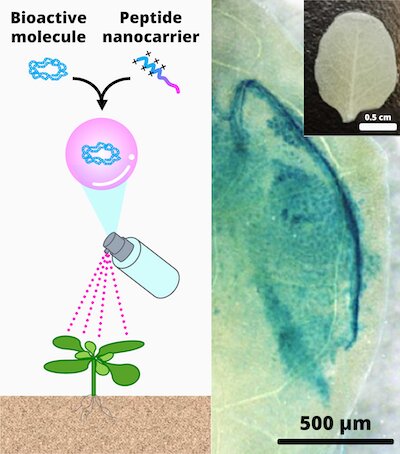Bioactive Peptides: Emerging Nutraceuticals for Health and Wellness
Bioactive peptides are short chains of amino acids that have physiological effects in the human body beyond their routine nutritional roles. These peptides are usually derived from food sources through digestion or through fermentation. In recent years, bioactive peptides have gained significant attention from researchers and the nutraceutical industry due to their various health promoting properties. This article examines some key types of bioactive peptides, their health benefits and potential applications in functional foods and supplements.
What are Bioactive Peptides?
Bioactive peptides are inactive within the sequence of their parent proteins. They are released during gastrointestinal digestion or food processing and demonstrate bioactivity once ingested. The main sources of bioactive peptides include milk, eggs, meat, seafood, grains and legumes. Digestive enzymes break down the intact proteins from these sources into smaller peptide fragments with varying amino acid compositions and chain lengths. Some key factors that determine a peptide’s bioactivity include its amino acid sequence, composition and size. Shorter peptide chains between 2-20 amino acids are usually more bioavailable and physiologically active in the body.
Health Benefits of Bioactive Peptides
Many bioactive peptides have been found to produce effects like antihypertensive, anticancer, antimicrobial, antidiabetic, antioxidant, opioid and immunomodulating activities. Here is an overview of some major health benefits:
– Antihypertensive Effects: Certain peptides derived from milk, soy and rice can inhibit the enzyme angiotensin-I-converting enzyme (ACE) which is responsible for regulating blood pressure levels. ACE-inhibitory peptides help lower blood pressure and reduce risks of cardiovascular diseases.
– Anticancer Activity: Some marine peptides show anticancer properties by inducing cancer cell death, inhibiting tumor growth and preventing metastasis. They can be explored as adjuncts to conventional cancer therapies.
– Antimicrobial Effects: peptides from milk, eggs, meat and seafood have demonstrated inhibitory effects against various foodborne and pathogenic bacteria as well as viruses. They enhance food safety and can be used to treat infections.
– Antidiabetic Activity: Dairy, cereal and legume peptides help regulate blood glucose levels, stimulate insulin release and improve insulin sensitivity. They may prove beneficial for managing diabetes.
– Immune-Modulation: Specific peptides from marine sources, eggs and milk can stimulate the immune system, facilitate wound healing and provide protection against infections.
– Other Benefits: Bioactive peptides also display high antioxidant, mineral binding, opioid and other pharmacological activities vital for overall health and wellness.
Potential Applications of Bioactive Peptides
Food Applications
Given their wide-ranging health benefits, bioactive peptides present opportunities for functionalizing various foods. Potential applications include:
– Dairy Products: Peptide-enriched dairy foods like fermented milk, yogurt and cheese. Whey protein is a excellent source.
– Meat Products: Addition of bioactive peptides to meat analogs, sausages and other meat-based foods.
– Bakery Items: Peptide-fortified breads, cookies and snacks using cereal and legume sources.
– Beverages: Development of nutraceutical beverages containing bioactive marine peptides.
Supplements and Medicines
Bioactive peptides also offer promise as ingredients in nutraceutical supplements, nutraceuticals and even clinical therapeutics:
– Dietary Supplements: Tablets, capsules and powders enriched with peptides targeting specific health areas like cardiovascular, bone, gut and brain health.
– Clinical Nutrition: Enteral formulas and products containing bioactive/therapeutic peptides for managing conditions like infections, cancer, diabetes, etc.
– Pharmaceuticals: Select bioactive peptides are being explored for developing anti-hypertensive drugs, wound healing agents, antimicrobial medicines, etc.
Challenges and Future Outlook
While bioactive peptides present immense opportunities, challenges include developing cost-effective extraction/fractionation methods and establishing stability during processing, storage and digestion. With advancements in fermentation, protein engineering and encapsulation technologies, new delivery systems will improve bioavailability of peptides and expand commercialization potential in the nutraceutical arena. As research progresses, bioactive peptides are emerging as significant molecular entities offering novel solutions for holistic health promotion and management of lifestyle diseases.
In summary, bioactive peptides are gaining recognition as nutraceuticals due to a variety of physiological effects beyond basic nutrition. Various food sources serve as natural reservoirs of therapeutic peptides. Further research can maximize health-benefits of bioactive peptides through diversifying functional food/supplement innovations. Overall, bioactive peptides present exciting applications across food, pharmaceutical and clinical sectors in the years to come.
Note:
1. Source: Coherent Market Insights, Public sources, Desk research
2. We have leveraged AI tools to mine information and compile it

